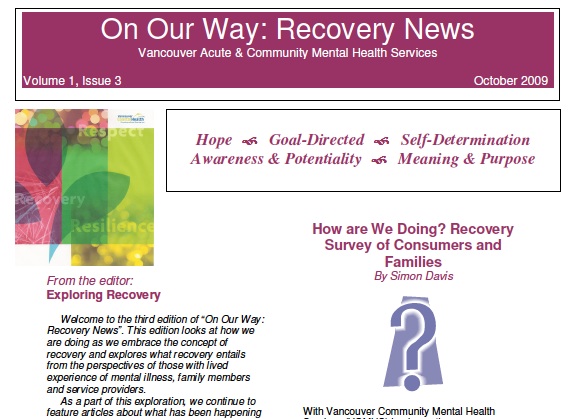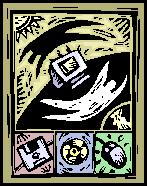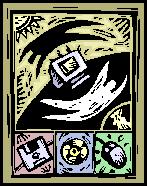
Debugging the Brain

 From the “Perspectives Pages” of On Our Way: Recovery News
From the “Perspectives Pages” of On Our Way: Recovery News
Debugging the Brain: A Path to Recovery
Interview with “Victor Race” By Renea Mohammed
I recently had the opportunity to interview Victor about his unique approach to recovery. Victor has a background in computer programing, design and problem solving. When he was struck with mental illness and diagnosed with schizoaffective disorder, he decided to take an active approach to his own recovery. He decided to apply the problem solving skills he used in the computer industry to his own mental health. He said with computers, you are working with information all the time. The human brain does the same thing. When he became ill, it meant his brain was misprocessing information. Recovery, for Victor, was like debugging a computer.
In programming, he said, if there was a software malfunction, then information or input needs to be controlled and analyzed. Victor started to look at the things in his life as information: that included food, people and the environments he found himself in. It was all input for his brain. Because his brain was no longer working correctly, he went through a process of deliberately restricting the input it received in order to better understand the illness he was dealing with.
Victor was attempting to eliminate random variables so that he could see things more clearly. He used the analogy of a speeding car. When the car is speeding, it’s hard to see the car in detail. But when you slow it down, you can pick out details like the license plate, the person driving, dents, hub cap design, etcetera. With his illness he had to slow everything down and control the information. He started to walk the same path every day. He ate the same thing every day. He eliminated meat, alcohol, sugars and chemical stimulants from his diet in an effort to eat in a way that was pure. He became vegan, seeing veganism as being about compassion to animals, passivity, having the least impact on things, and about having self-control. He said a big part of illness was not being able to control the self. Veganism was the opposite. He also had to understand his triggers and eliminate them via the restrictions he adopted in his life.
It wasn’t always easy. When Victor was hospitalized, he found himself in an environment he could not control. The experience made him more ill. He described the hospital as an irregular environment full of irregular people. He noted people in hospital are affected by each other and react to each other. There is no private space. You don’t even get your own room. And, in this unnatural environment, people are observed for symptoms.
He said the observers aren’t going to get reliable results in the hospital context because it is so unnatural. He described being told that if he didn’t sleep, medication would be forced on him. Yet how was he supposed to sleep with the guy beside him snoring loudly? He described one doctor saying he was paranoid, delusional and suicidal because he wouldn’t eat the food offered to him. Yet the reason he wasn’t eating was that the food being offered didn’t fit within his vegan diet. Victor said everything was manageable up to the point of his hospitalization. But the hospital experience exacerbated his situation to the point where he lost the control he had so carefully cultivated, making recovery more difficult.
When he was released from hospital, Victor got control back and continued to approach his recovery by controlling all the elements in his life. As a result he has come to understand the mechanism behind the delusions of reference he once experienced. He understands them now as his brain malfunctioning in its analysis of the relationships of information. He is relearning at a cognitive level and dealing with misprocessing. He is also feeling a lot better as a person. His anxiety is down. He is more grounded. He is making progress in his recovery.
But Victor noted that recovery hasn’t been about going back to the state he was in before he became ill. He said you can’t really do that because all of the experiences people go through leave us in a state of constant change. Recovery wasn’t about going back. It was about being able to deal with the current situation and being able to move forward. And recovery is something we all do. Take our physical bodies for example, our cells are constantly dying and being replaced – a form of recovery. Recovery is something everyone does whether they are conscious of it or not.
He notes recovery from illness shouldn’t be foreign to us, but it can be overwhelming. A big part of it is noticing that your reality is conflicting with the realities of others. You have to look at the contradictions going on, figure out why others are able to function better, understand that there are issues of your illness preventing you from functioning at a standard level and then figure out how to deal with those issues.
When asked about tips for people supporting others in their recovery process, Victor suggested putting in as many foundations for recovery as possible. These include resources, time, money, diet and services available. The more foundations that are in place, the better the outcome. Victor said it took him over a year to really understand what reality was. With a better foundation, his recovery might have been faster.
